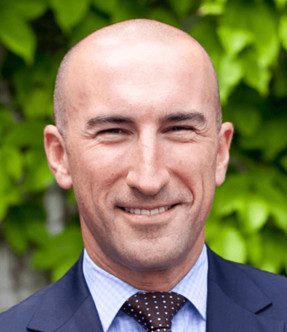Real estate professionals are exceptional at helping people secure what’s often the single biggest investment of their lives—their home—but they’re not always as adept at managing their own wealth.
Wealth means different things to different people, but ultimately, it’s dependent on the choices you make in life and what options those choices allow you to pursue. One of the biggest choices is an individual’s plan for retirement.
In this day and age, everyone is facing the challenge of preparing for a retirement that will support and maintain the quality of life you’re accustomed to. Simultaneously, the social structures that have supported retirement are changing. We’re coming to the realization that the overburdened Social Security system won’t likely pay out for us the way it did for our parents and grandparents.
But for brokers and their agents, the challenges are even more daunting: working in a 100 percent commission industry and not having pensions. As if that weren’t enough, expenses in retirement are only going up. So, we’re at a point in history where we need to take greater personal responsibility for our own retirement.
Here are four ways real estate practitioners can better manage their finances today so that they’re better prepared for tomorrow.
- Get clarity. This is an important first step: You need to be clear with yourself on what your story is for the future. Generally, we all have this vague notion of retirement—a vision of playing golf or spending time with the grandkids—and yet we don’t examine the nuts and bolts of what that really looks like or whether it’s realistic in the context of a financial analysis.
- Look at your three buckets. When examining your retirement, look at the three buckets that determine your wealth: career, assets/investments/savings, and expenses. In terms of your career bucket, how many years of earning potential do you have left? Then you have to look at your career trajectory. For the average 56-year-old real estate professional who’s doing more listing business than working with first-time home buyers, these could be prime earning years. For a broker, your business may just be getting going. This is where your story comes into play. Outline what you want to accomplish and how much time you have to accomplish it.
- Younger agents benefit from focusing on their expenses. Agents who are just beginning their careers likely have many significant and predictable expenses. This could include paying their own student loans or funding their children’s education. With tuition costs continuing to rise, they’d be wise to determine a path of action now. What could the cost of college look like 10 to 15 years from now? How will those expenses affect their retirement savings? This approach allows you to start implementing tactics immediately, such as a starting a 529 Plan for college savings.
- Diversification is crucial for your portfolio. This is often a big challenge for real estate professionals, as many invest in what they know best—real estate. However, there’s an important reason why it’s vital to have diversification across many asset classes. Call it “Modern Portfolio Theory,” or simply call it capitalism, but the point is maximizing your investment and minimizing risk. And while there are many times when real estate is great, there are times when the housing market has its challenges. The other big potential drawback of having all of your assets in real estate is liquidity. When you have an emergency and you need liquidity, it’s very challenging to generate that cash if your balance sheet is entirely illiquid assets. That’s why having a balanced portfolio with investments across all asset classes—cash, stocks, bonds, real estate, and alternative investments—is important, and over time, it will help real estate practitioners achieve their goals.
Retirement is that incredible time in your life when you transition from working for your money to your money working for you. Take the time now to outline the necessary steps that will ensure you know how your story will turn out. For more information, personal advice, or to run “what if” scenarios, visit Opes Advisors’ AgentWealth program.





